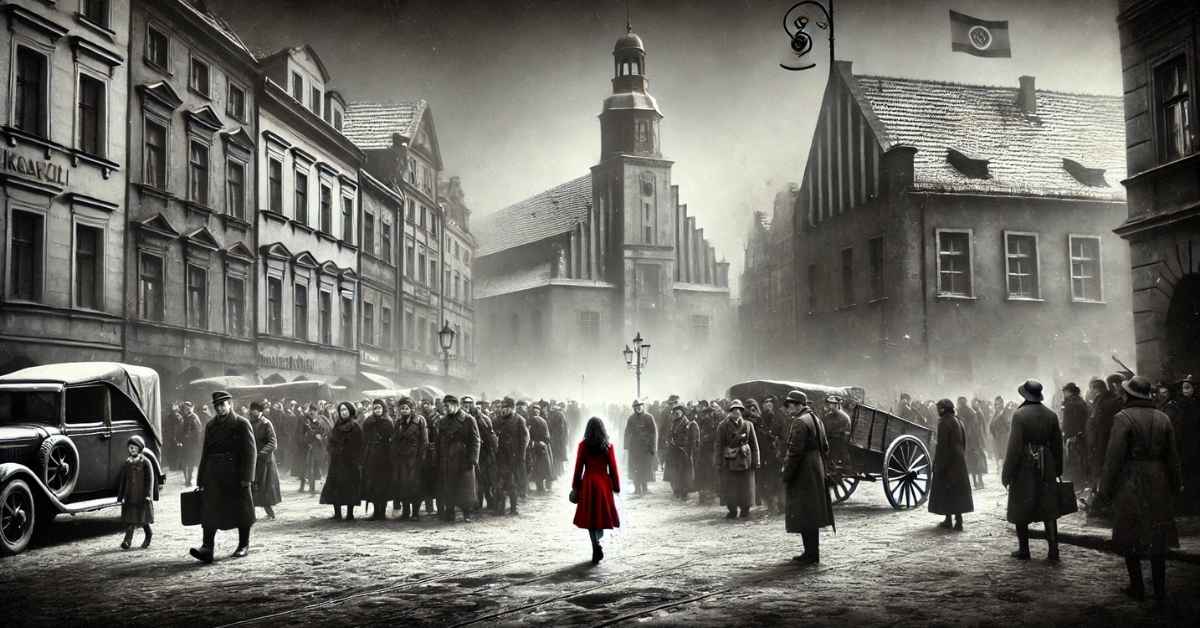There are some movies that entertain, some that educate, and then there are those rare gems that stay with you forever. Schindler’s List is one such masterpiece.
Watching it felt less like consuming a film and more like living through a powerful, heart-wrenching chapter of history. Let me share my experience with you—a mix of awe, heartbreak, and ultimately, hope.
A Story That Transcends Time
Directed by Steven Spielberg, Schindler’s List takes us back to one of humanity’s darkest chapters: the Holocaust. The story follows Oskar Schindler, a German businessman, as he transforms from a profit-driven opportunist to a selfless savior who risks everything to save over a thousand Jews.
From the very first frame, the movie pulled me in. The use of black and white cinematography isn’t just an artistic choice—it immerses you in the era, making the events feel raw and real. And then, there’s the haunting splash of color: the little girl in the red coat. That imagery, simple yet profound, stayed with me long after the credits rolled.
Why This Movie Matters
What struck me the most about Schindler’s List is its ability to humanize history. The Holocaust is often taught in classrooms as a series of numbers—six million Jews killed, countless families torn apart. But this film gives those numbers faces, names, and stories. It’s not just a history lesson; it’s a wake-up call to the resilience of the human spirit and the impact one person can have.
Watching Schindler’s journey unfold reminded me that change often starts with a single step—a single decision. At first, Schindler’s actions seemed small: employing Jewish workers to save on costs. But as the horrors of the Holocaust became clearer, his priorities shifted from profit to people.
This transformation felt so real, so tangible, that it reminded me of our capacity for change. If Schindler, a man flawed and deeply entrenched in privilege, could rise above greed and fear to do something extraordinary, what’s stopping us from standing up for what’s right in our own lives?
Performances That Leave You Speechless
Let’s talk about the cast—because their performances were nothing short of phenomenal. Liam Neeson as Oskar Schindler delivers a nuanced portrayal, capturing the complexity of a man who was both deeply flawed and incredibly courageous.
Ralph Fiennes as Amon Goeth, on the other hand, gave me chills. His portrayal of the sadistic Nazi officer was so unsettling that it served as a stark reminder of how power can corrupt. And then there’s Ben Kingsley, whose understated yet powerful performance as Itzhak Stern brought a quiet dignity to the story.
Each actor breathed life into their roles, making the characters feel less like figures in a story and more like people you might have known—or lost.
Moments That Stay With You
I can’t count how many times I paused the movie just to process what I was feeling. One moment that particularly broke me was the scene where Schindler laments, “I could have done more.” As he breaks down, surrounded by the people he saved, you can feel the weight of survivor’s guilt—and the bittersweet realization that even heroes wish they could have done more.
It’s moments like these that make Schindler’s List more than just a movie. It’s a mirror to our conscience, asking us to reflect on our own choices and privileges.
My Takeaway: The Power of Compassion
After watching Schindler’s List, I couldn’t stop thinking about the little acts of courage and kindness that ripple into something far greater. It made me wonder: What would I have done if I were in Schindler’s shoes? Would I have had the strength to risk everything for strangers?
This film isn’t just about remembering history—it’s about learning from it. It’s about understanding that even in the face of unimaginable cruelty, there’s room for compassion, courage, and hope.
Final Thoughts
If you haven’t watched Schindler’s List, I urge you to carve out the time. Yes, it’s heavy. Yes, it’s heartbreaking. But it’s also a film that will leave you changed.
It’s a reminder that while the world can be dark, it’s people like Oskar Schindler—flawed yet capable of immense good—who light the way.
And maybe, just maybe, it’ll inspire you to find your own way of making a difference.


